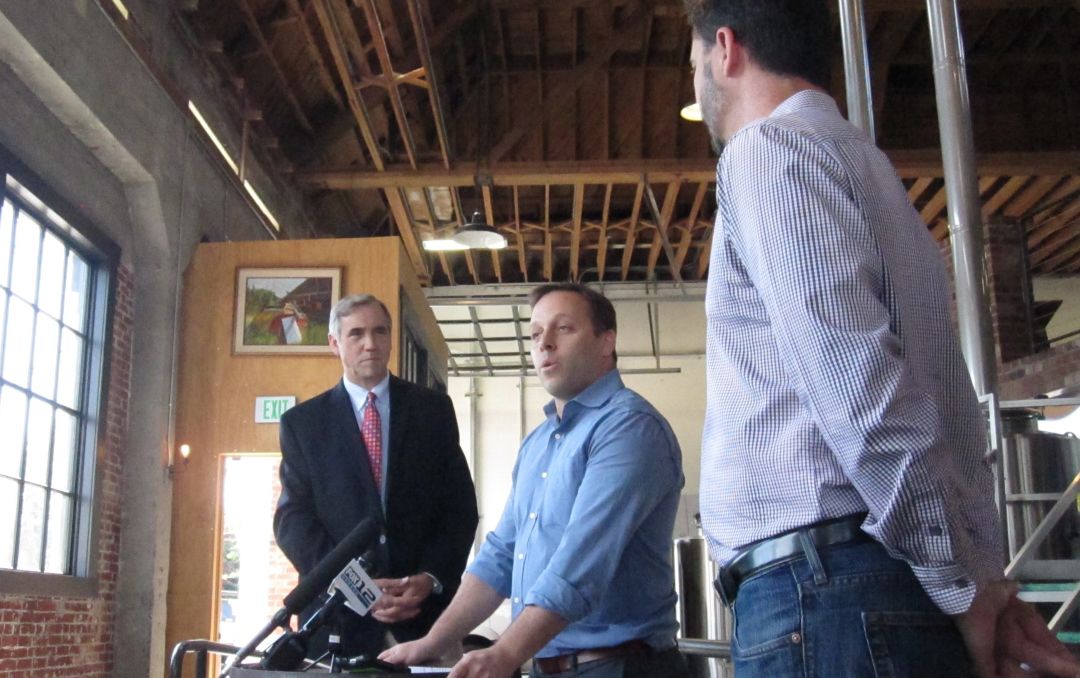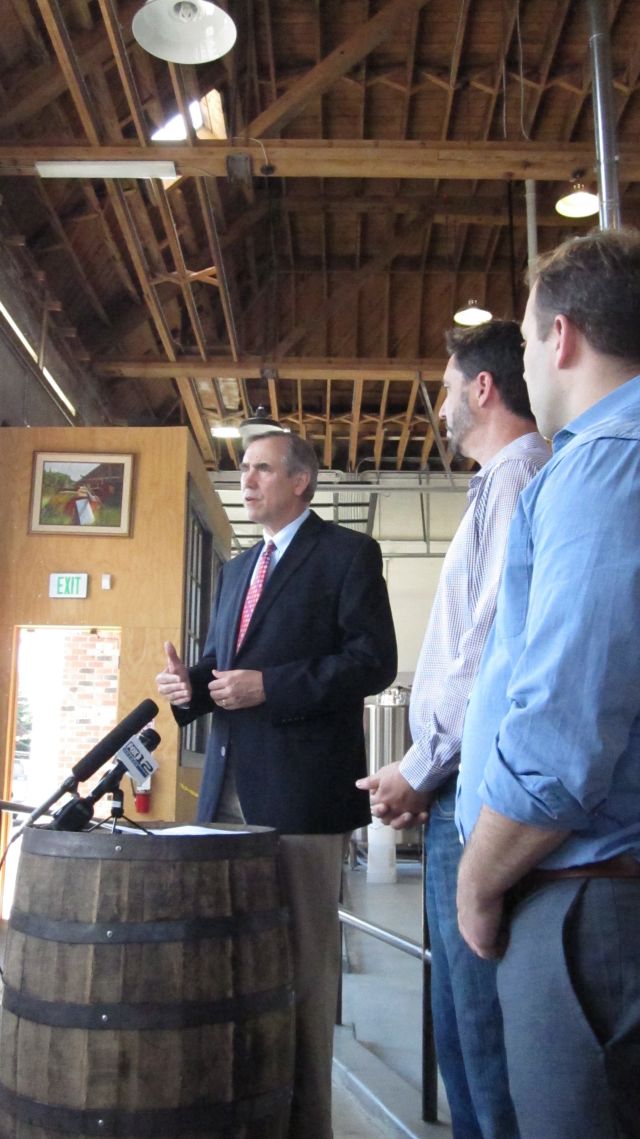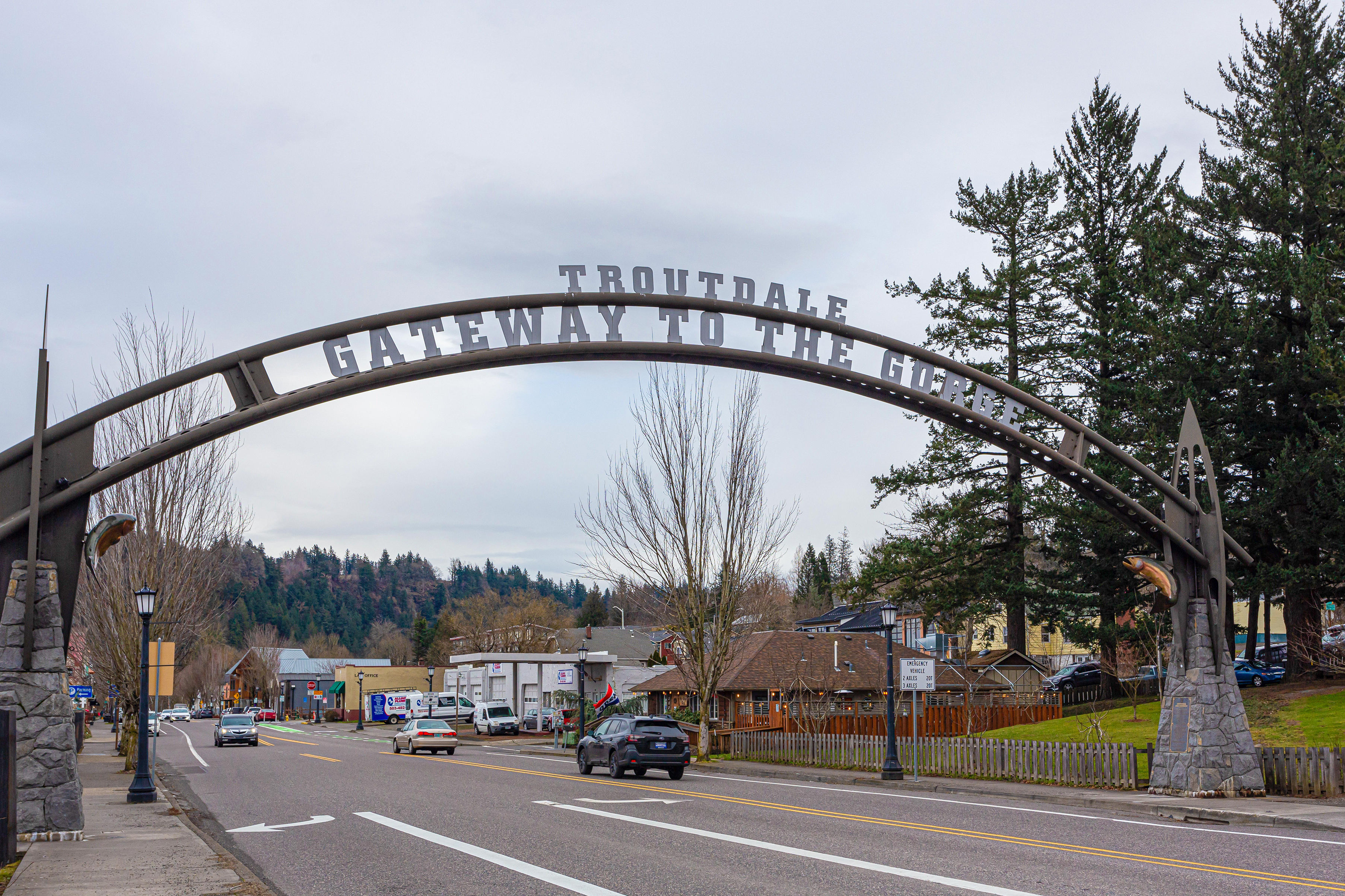Could a Megabrew Merger Threaten Oregon Craft Beer?

On July 21, Oregon craft beer industry representatives gathered at SE Portland's Commons Brewery to speak against the pending "Megabrew" merger. From left to right: Oregon Senator Jeff Merkley; Breakside Brewery's Ben Edmunds; and Mike Wright of the Commons.
Image: Ramona DeNies
It’s only 11:30 am, but summer heat is already making oxygen soup of the Commons Brewery’s Central Eastside digs. The formality of this Thursday, July 21, gathering doesn’t help, with brewers like Breakside’s Ben Edmunds and the Commons’s Mike Wright in button-downs, standing at attention next to the event's convener: US Senator Jeff Merkley.
“We care a lot about this industry,” said Merkley to a small cluster of Oregon craft beer insiders—from brewers like Ninkasi and Baerlic to local beer distributor Maletis.
At stake for all: the craft beer industry’s comparatively vulnerable market share, even in a state renowned for its small-batch suds. Just 22 percent of all beer consumed in Oregon is actually made here by the state’s 206 brewers (and counting). Each year, the Oregon Brewers Guild tracks craft beer’s growing foothold—last year, we guzzled up 11 percent more of the stuff than 2014—but make no mistake, Big Lager still looms large.

Image: Ramona DeNies
As Merkley noted on Thursday, that long shadow has a tendency to creep. Earlier this week, the US Department of Justice’s Antitrust Division intervened in the pending $107 billion merger—nicknamed “Megabrew”—of Belgian conglomerate Anheuser-Busch InBev (ABI) and UK-based SABMiller. (Today, the world’s two biggest beer empires collectively control 70 percent of American beer sales.) A DOJ settlement announced on Wednesday requires that for the merger to proceed, ABI must divest all of SABMiller’s US holdings—which include brands like Coors, Miller, and Blue Moon. The settlement further aims to hobble the carrot-and-stick tactics, including outright bribery, that large brewers can use to manipulate US beer distribution chains.
In a same-day statement, the national Brewers Association said the DOJ requirements will hopefully guard against the creation of a massive monopoly, but the group's members “remain concerned.”
Sen. Merkley, who has a history of taking up craft brewers’ interests, formally joined the fight against Megabrew in November 2015. In a letter filed with the US Attorney General, he and several other legislators urged an investigation into the deal for “unfair and illegal trade practices.” At Thursday’s event, Merkley hailed the settlement but also echoed the trade association’s continued apprehension.
“I am concerned that a large company like this will try to find ways around this,” Merkley said. “For now, this is a win for craft brewers, and a win for fair industry practices.”
Brewers present at the event are counting on the Senator to help play watchdog as the deal moves forward.
Said Ninkasi Brewing’s Jaime Rodriguez, “[ABI and SABMiller] have a lot more resources now, and are historically adept at getting around regulations. The illusion of choice is a big issue. We want to keep the beer flowing.”
“Definitely, you’ll find brewers that are still concerned,” said Dan Engler, the current president of the Oregon Brewers Guild and co-owner of Occidental Brewing, who did not attend the Merkley event. Regardless of the DOJ restrictions, Engler said, the merged companies will “have more power to consolidate the market and essentially make it harder for smaller breweries.”




